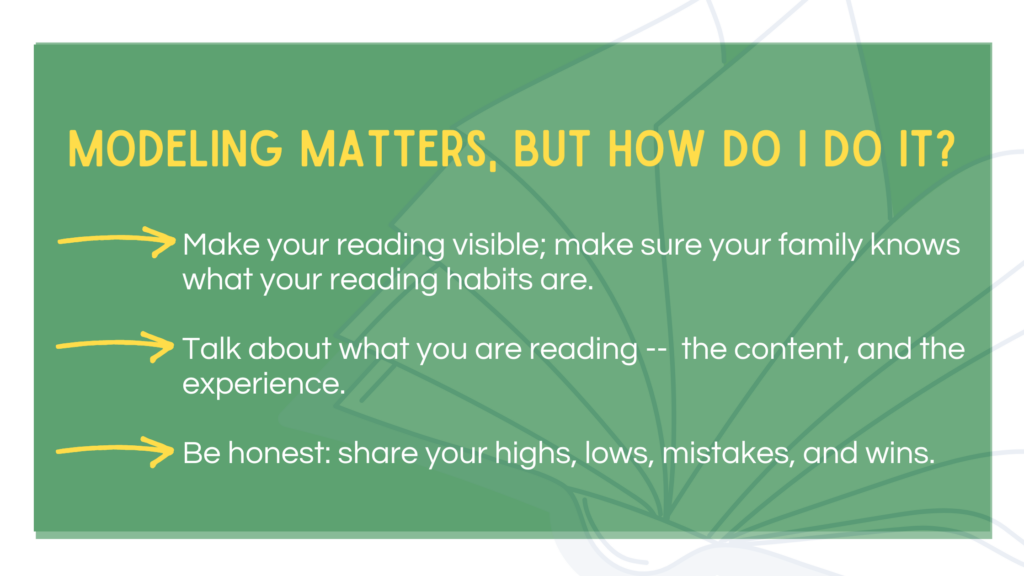Raising Readers: Start Here
July 22, 2022
If raising readers came naturally for everyone, I wouldn’t have created this space. If you want to be better for your children and create a culture of calm, critical thinkers, please check out The Village. I promise we’re here with positivity, understanding, and hope for the future!

Nobody wants to be told what to do by someone who doesn’t do that thing themselves. Teachers and parents, we cannot ask our children to read if we don’t make it obvious that we are readers, too. To raise a reader, you must be a reader.
Reading literature is a free (not instant or complete, though!) way to take care of your mental health. Do you want your child to have empathy for others and deal with their own strong emotions and hard times in a healthy way? Yeah? Same. So, let’s get reading.
We are the first layer of social influence our children encounter, and, it’s cliche for a reason, so I’ll say it: actions really do speak louder than words. Let’s dig into my three pillars of MODELING A READING LIFE to better understand how to be an effective model:

VISIBLE READING
First and foremost, make sure your child sees you reading. If you already read, but your child doesn’t see you doing it, or KNOW you are doing it, you can change that. If you aren’t reading, start.
TALKING ABOUT READING
Silently reading and not talking about what you are reading isn’t enough. You’re going to need to get comfortable talking about your books with your family. (Hint: I have help coming your way, so go ahead and click here if you are all about practicing.)
HONESTY
Modeling reading for your child doesn’t necessarily mean you will happily devour books all the time and love every single one of them. Let your child know when a book is slow, if you decide to stop reading it, or if you power through and are happy you did. Raising readers doesn’t mean raising humans who say they love ALL books. Those people are liars and not critical thinkers. Be honest if you’re trying to rebuild your reading life or try new genres that you haven’t given much thought about before; share your struggles and your WHY with them. You are a HUMAN, and our children want to see that they aren’t the only ones putting in effort. Sometimes great things are great; sometimes great things are hard.
You’ll notice I don’t touch on reading aloud here. Modeling fluency, in my opinion, falls in a different (still important) bucket. For now, I want you to focus on your own, personal reading life. Reading aloud has tons of benefits, but, if it’s a habit your family has dropped as your child(ren) have gotten older, it may take some work to get back into it. More on that another time!
My next newsletter gives two tips that might help you get started with modeling (but are also fun if you’re already doing it), so if you aren’t on the list yet, jump on it here. In the meantime, enjoy your family and give yourself a smile for putting in the effort.
Add a comment
0 Comments